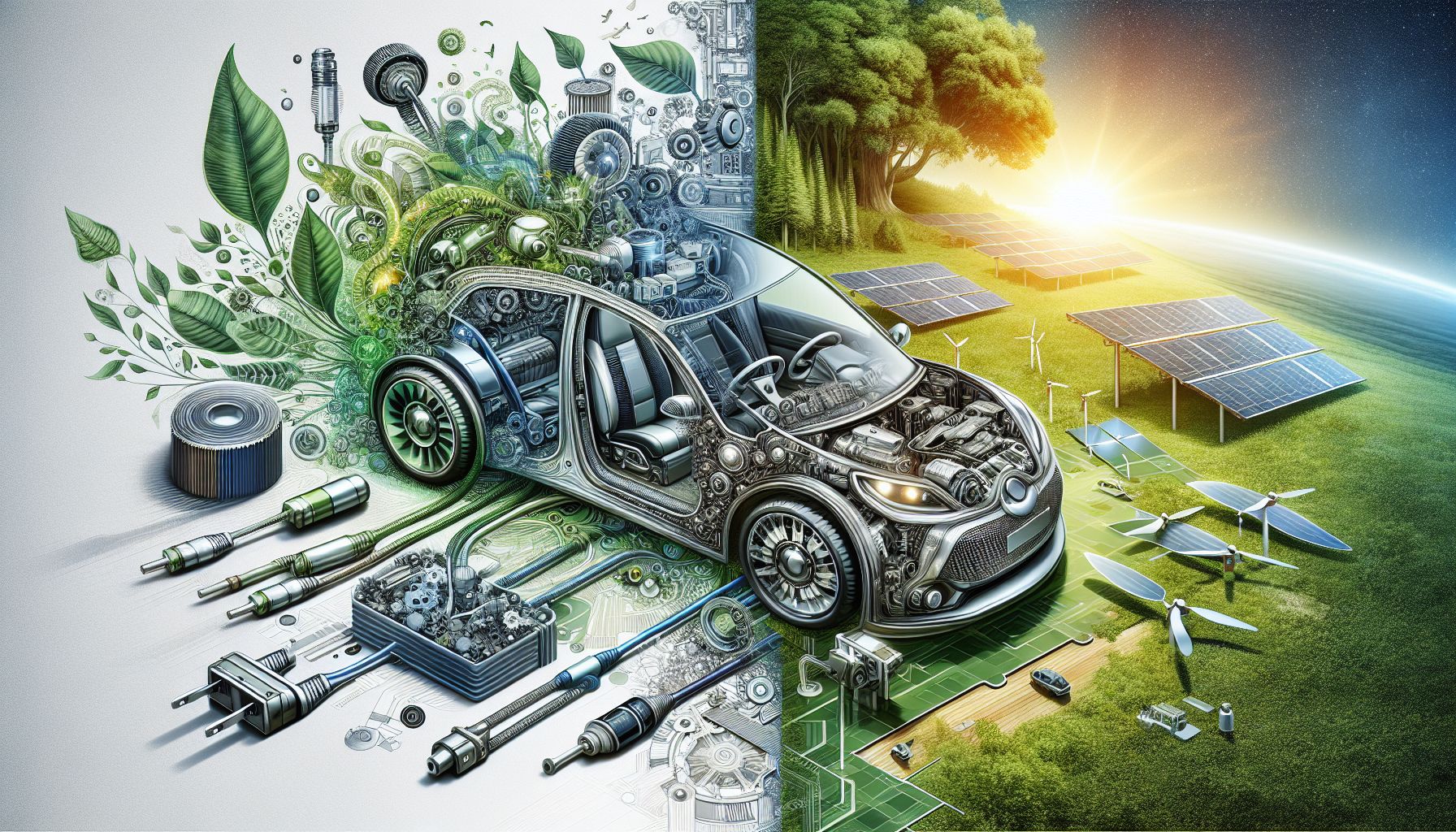📌 Let’s explore the topic in depth and see what insights we can uncover.
⚡ “Say goodbye to the gasoline guzzler in your garage; the auto industry is shifting gears with sleek, sustainable electric cars. Let’s plug in and explore how green technology is revving up the future of automotive design.”
Welcome, eco-enthusiasts and tech-savvy readers! Today, we’re diving into the exciting world of electric cars, where cutting-edge automotive design intersects with green technology. As we strive towards a sustainable future, electric cars are taking the center stage, redefining our relationship with vehicles and the environment. Join us on this electrifying journey as we explore the fascinating world of e-mobility and its profound impact on the planet. 🌍⚡ With global warming and environmental health becoming more urgent concerns, electric cars (EVs) are rapidly emerging as a practical, eco-friendly alternative to traditional gas-guzzling vehicles. The transition is not just about swapping petrol for electricity; it’s an entire rethink of how we design, manufacture, and use cars. It’s about creating a symbiotic relationship between our need for mobility and our duty to protect the environment. So, buckle up as we dive into the world where automotive design meets green technology. 🚗💡
⚡ The Heart of the Machine: Electric Powertrains 🛠️

"Revolutionizing Roads: Electric Cars Meet Green Innovation"
The powertrain is the heart of any vehicle, converting energy into motion. Traditional cars use internal combustion engines, which burn fossil fuels and release CO2 into the atmosphere. In contrast, electric cars employ an electric powertrain, which comprises an electric motor, inverter, battery pack, and a transmission system. This switch to electric powertrains is a game-changer in automotive design. Unlike combustion engines, electric motors are incredibly efficient, converting up to 95% of energy into motion. They’re also compact and lightweight, allowing for more flexible and innovative vehicle designs. Plus, the silence of electric motors allows for a quieter, smoother ride - truly a win-win! The ‘fuel’ for these powertrains, the batteries, have also evolved. Modern EVs predominantly use lithium-ion batteries known for their high energy density and long lifespan. However, the future promises even more advanced and eco-friendly options like solid-state and bio-degradable batteries. 🦾🔋
🌿 Sustainability in Manufacturing and Recycling ♻️
There’s no point in driving a green car if it’s not made greenly, right? That’s why electric vehicle manufacturers are striving to revolutionize not only car design, but also the manufacturing process. Firstly, the production of electric cars is becoming increasingly energy-efficient. For example, Tesla’s “Gigafactory” in Nevada is powered by renewable energy sources, significantly reducing the carbon footprint of each vehicle produced. Secondly, manufacturers are making conscious efforts to use eco-friendly materials. From interiors made of recycled plastic bottles to flaxseed-based composites for body parts, the green revolution is sweeping across the automotive industry. 🌿🚗 Last but not least, recycling is a critical aspect of electric car sustainability. From lithium-ion batteries to electric motors, almost every component of an EV can be recycled or repurposed, helping to create a circular economy. In fact, some manufacturers are already offering ‘battery second-life’ programs, where used EV batteries are repurposed for energy storage. This way, every part of an electric car contributes to a sustainable future, even at the end of its lifecycle. ♻️🔄
🚀 Innovative Features and Smart Technology 🤖
The intersection of automotive design and green technology is not just about efficiency and sustainability. It’s also about pushing the boundaries of innovation and introducing smart features that enhance the driving experience. Take regenerative braking, for example. This ingenious system converts the kinetic energy lost during braking into electrical energy, which can then be used to recharge the car’s battery. Not only does this boost the vehicle’s efficiency, but it also extends the battery’s lifespan. Then there’s the integration of smart technology. From AI-driven autopilot systems to sophisticated infotainment setups, electric cars are becoming smarter and more connected. They’re not just vehicles anymore; they’re mobile tech hubs, enhancing convenience, safety, and entertainment for the drivers and passengers. And let’s not forget about wireless charging. Imagine parking your car and having it charge automatically without plugging in any cables! This technology is already here and will become more common as electric cars become mainstream. 🚀🔌
🧭 Conclusion: A Greener Future on Wheels
As we zoom towards a sustainable future, electric cars stand at the crossroads of automotive design and green technology. They’re more than just vehicles; they’re symbols of our commitment to a greener, cleaner planet. From efficient electric powertrains and sustainable manufacturing to innovative features and smart technology, electric cars are redefining our relationship with vehicles. They’re showing us that it’s possible to enjoy the convenience of personal mobility without compromising the health of our planet. But this is just the beginning. As technology advances and our understanding of sustainability deepens, who knows what the future of electric cars will look like? One thing’s for sure: it’s going to be an exciting, electrifying ride. So keep your seatbelts fastened, because the journey to a greener future is just getting started! 🌍🚗⚡
🤖 Stay tuned as we decode the future of innovation!
